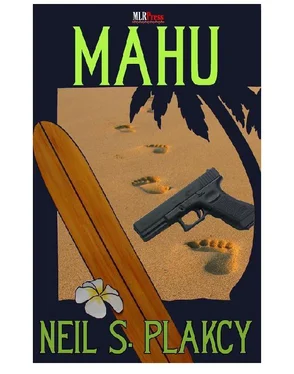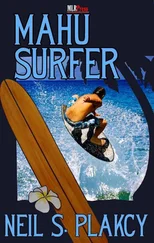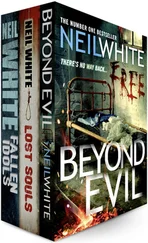Neil Plakcy - Mahu
Здесь есть возможность читать онлайн «Neil Plakcy - Mahu» весь текст электронной книги совершенно бесплатно (целиком полную версию без сокращений). В некоторых случаях можно слушать аудио, скачать через торрент в формате fb2 и присутствует краткое содержание. Жанр: Полицейский детектив, на английском языке. Описание произведения, (предисловие) а так же отзывы посетителей доступны на портале библиотеки ЛибКат.
- Название:Mahu
- Автор:
- Жанр:
- Год:неизвестен
- ISBN:нет данных
- Рейтинг книги:4 / 5. Голосов: 1
-
Избранное:Добавить в избранное
- Отзывы:
-
Ваша оценка:
- 80
- 1
- 2
- 3
- 4
- 5
Mahu: краткое содержание, описание и аннотация
Предлагаем к чтению аннотацию, описание, краткое содержание или предисловие (зависит от того, что написал сам автор книги «Mahu»). Если вы не нашли необходимую информацию о книге — напишите в комментариях, мы постараемся отыскать её.
Mahu — читать онлайн бесплатно полную книгу (весь текст) целиком
Ниже представлен текст книги, разбитый по страницам. Система сохранения места последней прочитанной страницы, позволяет с удобством читать онлайн бесплатно книгу «Mahu», без необходимости каждый раз заново искать на чём Вы остановились. Поставьте закладку, и сможете в любой момент перейти на страницу, на которой закончили чтение.
Интервал:
Закладка:
He raised his wheat-logo mug to me and headed off to snag us a table, not an easy task in a bar crowded with happy-hour beer drinkers. He was successful, though, as he seems to be in everything he tries, and by the time I had my glass of marzen, a German wheat beer they specialized in, he was sitting at a table at the very edge of the patio. Just beyond us a tanker was coming in through the narrow channel, silhouetted against the setting sun. There were a few clouds massed over the Waianae Mountains, but otherwise it was a glorious, clear, golden afternoon. Then why did I feel so bad?
“It sounded like you wanted to talk,” Harry said, motioning to our relative obscurity.
“I do,” I said, sitting down. “How’s it going?”
“It goes. I’m remembering how to sense the waves. It’s something I’d forgotten, you know? I know all the physics, but I forgot how you just have to sit there and feel the water.”
I nodded. “You settling in all right at the university?”
“I’ve got a couple of smart students,” he said. “Better than I expected. But enough crap. What’s wrong?”
I shifted uneasily in my seat. A young Japanese couple just beyond us on the pavement stood by one of the yellow bollards and kissed, and then a fat tourist in a garish aloha shirt offered to take their picture. I realized again I would never go on a honeymoon, never mug for the camera with a pretty wahine on my arm, never build up memories to share with my children and grandchildren. I had an urge to spill everything to Harry, but I’d done that with Akoni already and look where it got me.
“Just a case,” I said. “Listen, maybe Monday morning, you can give us a hand? We got a computer with a password we don’t know, and a missing Palm Pilot that maybe was backed up onto the hard drive. You know anything about that?”
“You have to ask?” Harry put his hand over his heart. “I’m hurt. Of course I know about that. They haven’t made a password yet I can’t break.”
We made a time to meet at the station Monday, and then I directed the conversation back to surfing, and Harry went along with it. We ordered some food, and by the time we staggered away I was feeling almost good again. I’d been thinking for a while that I was being the good friend to Harry, helping him get adjusted to life in Hawaii again, going surfing with him while he flailed his way back to proficiency. But it was clear he was doing something for me, too.
BROTHERLY LUAU
The next morning was Saturday, and I spent most of it surfing, riding my bicycle, and trying not to think about Tommy Pang or any revelations that his death might bring up about me. I was only partially successful.
Sunday morning I drove over to my brother Haoa’s house for a big family luau. My oldest brother, Lui, was the general manager of the island’s best TV station (at least in my opinion), and Haoa, my second brother, owned a landscaping business. Haoa lived in a big house, lavishly landscaped, in St. Louis Heights, the same neighborhood where we all grew up, but much higher up on the hill than my parents.
Lui and Haoa always competed for attention when we were kids, and that rivalry still continued. Each wanted to make more money than the other, have a nicer house, smarter children, prettier wife. Neither ever scored a particular advantage in this game of one-upmanship; every time one did something, the other aped him or tried to top him. Last summer Lui sent his son Jeffrey to Japan for a summer exchange program; this summer Haoa sent his daughter Ashley to England. Lui put a pool in at his house; Haoa a pool and a hot tub. It’s an accelerating spiral I refused to get sucked into.
Of course they were much closer to each other than they were to me, or than I was to them. There were only two years between them, while there were eight years between me and Lui, six between me and Haoa. In childhood, the only thing they joined forces on was picking on me. As an adult, though, I was reconciled to them, and loved them as much as any brother could. I would always be the “kid brother,” the baby of the family, and just as my relations with my father had improved as I’d matured, my friendships with my brothers had grown and deepened as well.
It was scary to think that I might lose that closeness to them if I told them I was gay. Haoa was the more macho of the two, big, heavyset and blustering, looking more Hawaiian than anyone else in the family. He often made fag jokes, in fact, jokes about almost every ethnic group, even Japanese, and I had often seen our mother wince at those jokes, since she was half Japanese and knew the prejudices her parents went through during the Second World War.
Lui’s eyes were more oval, and he was the shortest of the three of us, barely topping six feet. He was shrewd, with our father’s business sense, but doubled. He was also fiercely competitive, not just with Haoa and me but with the world at large, always seeking to assert his primacy as first boy.
I pulled up outside Haoa’s house and parked at the curb. Already I could hear my nieces and nephews in the backyard, and a stereo playing Keola Beamer’s Wooden Boat CD. “Mama going fishing, Papa going fishing, rocking in a wooden boat,” he sang as I walked up the path. “We’re rocking in a wooden boat, several generations old, we’ll be going on forever, rocking in a wooden boat.”
Everybody wanted hugging and kissing. Haoa wrapped me in a big hug, his breath already a little beery. “Welcome, little brother,” he said. He stepped back from me. “What, no pretty wahine with you? You must be getting old, slowing down.”
“Must be,” I said. Another big hug from Lui, and little kids stampeding around wanting hugs from Uncle Kimo. We took lots of pictures out in the backyard, under the pink tecoma tree, where its fallen petals had produced a pink carpet laid over the lush green lawn. My favorite was a picture of me reclining on the lawn with all my nieces and nephews crawling over me, from Jeffrey and Ashley, who were twelve, down to the little babies barely out of diapers.
We played the Makaha Sons on the stereo, along with Hapa, Keali‘i Reichel, and Israel Kamakawiwo‘ole. The day before Haoa and his landscaping crew had dug the imu in one corner of the yard, and the luscious scent of roasting pig floated out into the surrounding hills.
When I was a kid we had luaus at our house now and then, usually to celebrate something. The best one was for Haoa’s graduation from Punahou. He had been a big football star there, and all his friends came for the luau. My father and brothers and I were up early in the morning, digging the imu. My mother kept saying, “Make it bigger. Lots of mouths to feed today.” We had every kind of food imaginable. Chicken long rice, poi, shark-fin soup, sweet and sour spareribs, Portuguese sausage and beans. And desserts, pineapple like crazy, ten different types of crack seed, malasadas, mango ice cream. I thought we would have leftovers for days but those football players ate everything in sight. At the end of the night, I remember my parents sighing happily, glad that it had gone so well, and equally glad that it was all over.
Haoa’s luau was not as fancy; after all, this baby was the fourth. Still, the people kept streaming in. Old family friends, distant cousins, neighbors, clients of Haoa’s landscaping business, potential clients he wanted to show off for. My father and his cronies held court on the screened porch, a bunch of old men smoking cigars and telling stories from thirty years ago.
My father has been building houses in Honolulu since before I was born, and building friendships, too, across communities. His father, a full Hawaiian, was trained by missionaries, learned to read and write English, and became a teacher at the Kamehameha School. My grandmother was haole, a schoolteacher from Montana who came to the islands to teach, fell in love and never left. My father grew up in Honolulu, and his parents encouraged him to make friends everywhere. As a boy, he had pake, or Chinese, friends, as well as friendships with the leading scions of the haole community. He began college at UH, but World War II intervened, and he served in Europe in a unit comprised of many island boys.
Читать дальшеИнтервал:
Закладка:
Похожие книги на «Mahu»
Представляем Вашему вниманию похожие книги на «Mahu» списком для выбора. Мы отобрали схожую по названию и смыслу литературу в надежде предоставить читателям больше вариантов отыскать новые, интересные, ещё непрочитанные произведения.
Обсуждение, отзывы о книге «Mahu» и просто собственные мнения читателей. Оставьте ваши комментарии, напишите, что Вы думаете о произведении, его смысле или главных героях. Укажите что конкретно понравилось, а что нет, и почему Вы так считаете.












